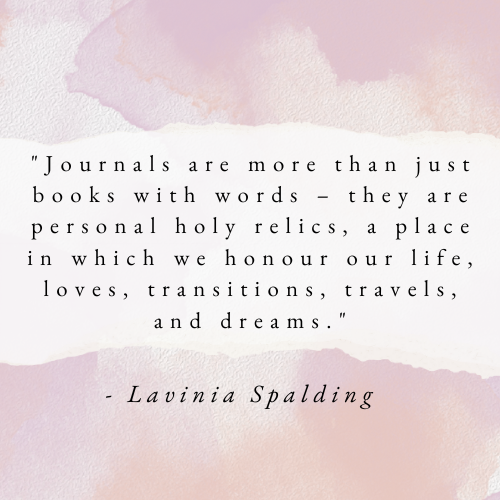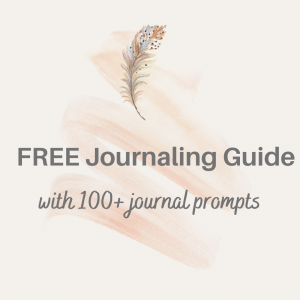Words of Wisdom from Writing Away by Lavinia Spalding

Writing Away by Lavinia Spalding is one of the best books I’ve read on journaling, especially travel journaling. This book is packed with tips on how to customise your journal, which are interwoven with Spalding’s personal stories and experiences. Writing Away will leave you feeling inspired and motivated you to create your own journal masterpieces.
1. Journaling can transform us
“In turn, as we write, the journal transforms us. It allows us to instantly process impressions, which leads to a more examined layer of consciousness in both the present and the future. It’s a relationship, and let me tell you, it’s no cheap one-night stand.”
2. How to layout your travel journal
“Make three columns towards the front of your book.
- Date 2. destination 3. discovery. Date and destination require no further explanation. Discovery is your call a highlight or lowlight. The only rule (and the hardest part) is to choose just one moment from your day.”
3. How to set your intention in life by journaling
“Either way, no time like the present to set an intention. Grab a pen, turn to a blank page near the front of your notebook, and right, “What do I want?” Then put down your pen. For one minute, right nothing; focus solely on an intention for your journal. When a minute has passed, pick up your pen and begin writing. Go for a few minutes without lifting your hand. Then when you’re finished, write, “Why do I want it?” And do the same. And just like that, your intention is set.”
4. How to set your intention for your next journey
“Say the word. Time yourself for one minute and list as many adjectives as you can to describe what you wish for both your journal and journey (fun, illuminating, liberating, improvisational, relaxing, galvanising, unpredictable, romantic, messy, intoxicating, lazy, promiscuous).”
5. Embrace rituals when journaling
“Some people keep their notebooks swathed in a piece of fabric; that way even the act of unwrapping it feel ceremonial. You might begin each entry with a different quote, song lyric, dedication, margin doodle, or a brief weather description.”
6. How to turn your travels treasures into works of art
“Artist and daily journal-keeper Deb Durban views travel as a nucleus for creativity. Often, when Durban goes on a trip, along with her journal she packs a Ziploc bag for each day (thus, for a sixty-day sojourn, she’d pack sixty Ziplocs). Once on the road she fills each bag with the day’s small treasures: newspaper clippings, photos, scraps of material, local money. She then dates the bag, puts it aside, and the following day gathers material to fill another. Durban transforms the contents of each bag into individual pieces of artwork, such as mixed media collages on pre-cut watercolour postcards. Back home, she completes all sixty separate pieces, and then according to her artistic design (sewing them together like a quilt, bolting them together at a corner to form a rotating book, or fixing them to tiles and finishing them with wax), she creates a large work that is at once a stunning assemblage and a vivid evocation of her journey.”
7. Break up blocks of writing in your journal
“If you’re a prolific writer who tends to fill page after page with words, make sure to cordon off sections of your journal before you begin writing; otherwise your book will end up all words, no play. Reserve entire blank pages as well as a half and quarter pages for the future site of undetermined Momentos and pictures. An easy way to do this is to trace objects – your coffee cup, your passport, your camera – and wrap your writing around it, leaving that space for decorations.”
8. Journaling supports memory
“The good news is that, according to Scientific American, one effective way to improve memory is through – ta-da!– expressive writing, a.k.a.,journaling. Though scientific understanding of neurobiology involved in personal writing remains speculative, certain psychological benefits are proven, and one is that journaling supports memory. The moral: if you’re serious about retaining a specific memory, write it down.”
9. Create a scavenger hunt in your journal
“A-Z. On a random page in your journal, write the alphabet down the left side of the page. As you travel, fill in words beginning with each letter. This will force you to scavenge for details you might otherwise not include, and it’s also a place for hard-to-categorise odds and ends.”
10. Adventure is often misadventure in disguise
“Simply put, and adventure is often the sum of its misadventures.”
11. Your journal is your personal space
“In this journal, you write for you and answer to you. So forget everything else – all your notebook asks is that you show up and write.”
12. Travel cracks open the mind
“But here’s another, even better way to work on your art – particularly writing: if you want to work on your art, work on getting away from your life. A bold statement perhaps, but one I stand firmly behind: there’s nothing more creatively inspiring the travelling with a journal. Even one afternoon spent exploring the narrow streets of an unfamiliar city or ambling through a quiet graveyard can set off permanent, alchemical changes in your inner landscape. Travel cracks open the mind, and through these cracks stories, words, images, and ideas flow.”
13. Not sure what to write about? Try these prompts…
“Or, do a free-write of current life events and themes. Begin with the time of day, date, and location. From there, mix it up. Write a concise summary of what you’re wearing, the music you’re listening to, your travelling companions, the book you’re reading, the religion you’re practising, what’s in the news and on the radio, the exchange rate, your favourite new friends and acquaintances, the person you last kissed, the food you’re craving, the person at home you miss the most, the drama in your life, the website you’re obsessed with, the last movie you saw – and always include the highlight of the past 24 hours. It’s the ultimate time capsule of who you are on a given day. A year from now, will any of it be the same? It never has been for me.”
14. Journals are special
“Journals are more than just books with words – they are personal holy relics, a place in which we honour our life, loves, transitions, travels, and dreams.”
15. Journaling can be as simple as writing one word to describe your day
“Keep your journal on your nightstand, and every evening before you turn in, write the date on the First blank page and one word to illustrate your day. It can be an adjective (productive, frustrating, windy, contemplative) or a word involving a specific occurrence (taxes, Mamosa, eyebrows).”

